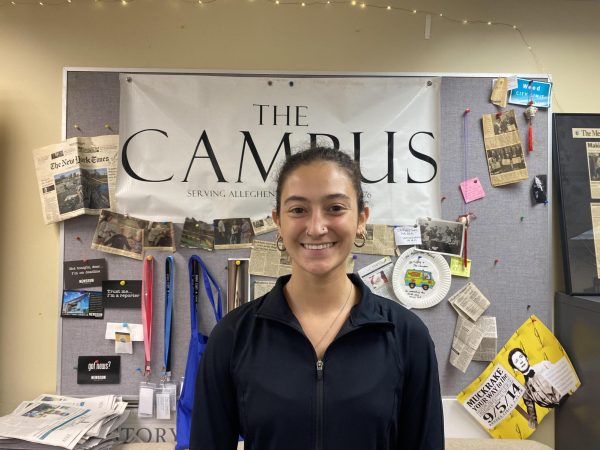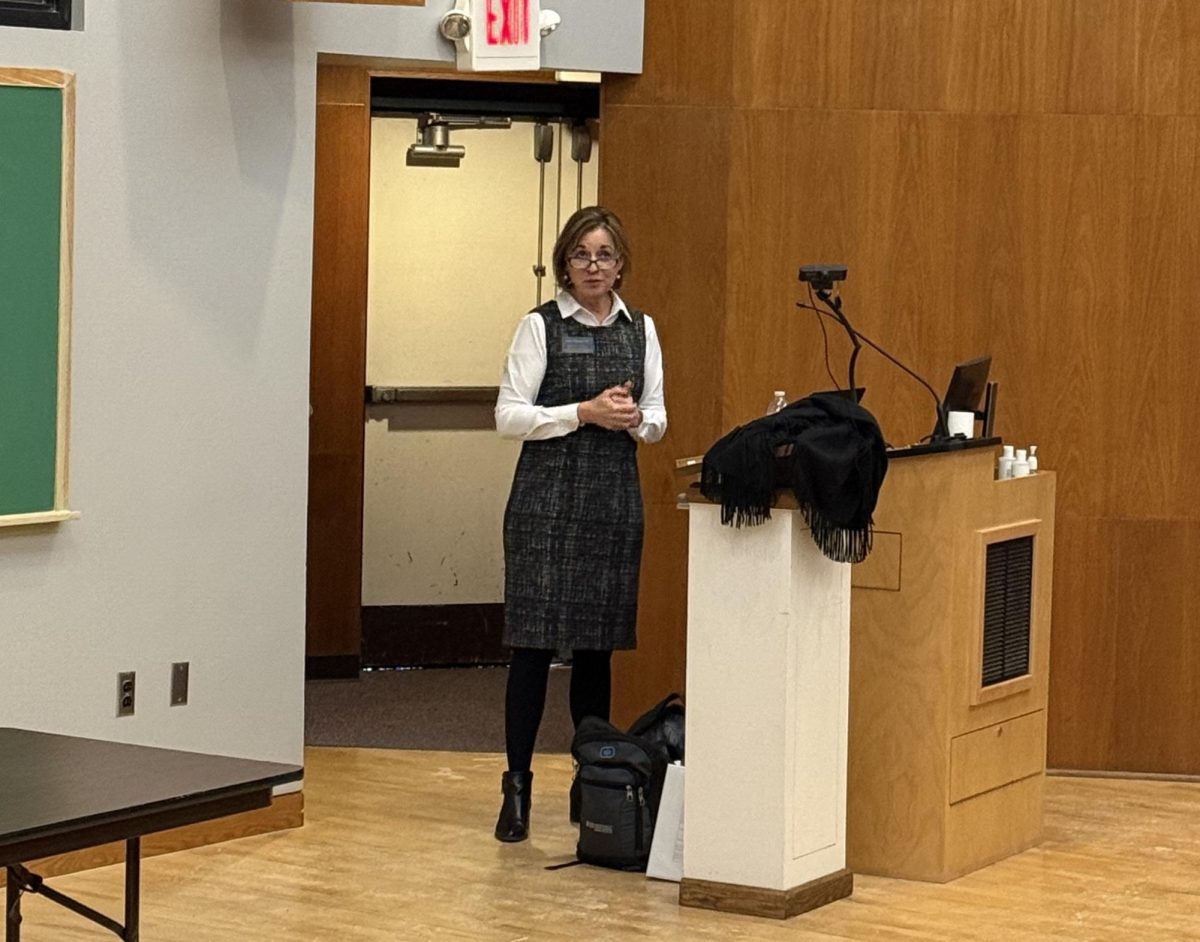Almost four years after COVID-19 was declared a pandemic, students at Allegheny College are raising concerns for their health as a new variant of the virus spreads on campus.
In a campus-wide email Sept. 6, the college announced its response to the virus is switching from a pandemic to an endemic response. The guidelines for the health and safety of students on campus remain in par with the Center for Disease Control guidelines: five days of quarantine from the start of symptoms, limiting contact with the public when sick and masking when going out if tested positive. For those who test positive and have symptoms lasting more than 10 days, consulting a doctor is recommended.
The college offers testing on campus at Winslow Health Center in Schultz Hall. Students also have the ability to switch dorm rooms after testing positive by contacting the dean of students.
Global Health Studies Professor Becky Dawson specializes in epidemiology, the study of disease patterns and human population. For the last four years, she has closely followed the evolution of the virus.
“For the most part, we’re seeing the evolution of lots of mutations in places in the virus where it’s changing to get into cells easier in our body because that’s what viruses do — they need to get into cells in order [to live],” Dawson said.
The biggest thing epidemiologists look for is the virus mutating in a truly dangerous way.
“The two things that we’re watching for is a variant that would produce lots and lots of severe disease,” Dawson said. “Those usually burn out fast, but they kill a lot of people in the process. If there would be a variant that would escape all immunity, vaccines and previous infection, that would cause a lot of alarms because we would see huge surges in cases, as opposed to little blips which is where we are at this point in the pandemic.”
With the temperature dropping and flu and cold season coming in full swing, cases have already begun spreading on campus, and students are feeling the effects.
Jillian Clark, ’27, experienced the effects of the virus after her tennis coach tested positive and canceled two days of practice and postponed scrimmages.
Despite her close contact, Clark said she isn’t overly concerned with getting sick, though at times it can be out of her control.
“I’m not going to try to be around someone who I know is super sick, or showing symptoms,” Clark said. “Some of the people I was around, I couldn’t prevent that I was with them, or they didn’t even know beforehand.”
Canceled classes, practices and other events are becoming more and more common as students and staff continue to test positive.
Dawson acknowledges this, pointing out that the virus is now something that needs accommodated for in everyday life.
“It’s balancing not living in fear and panic, but recognition that now we have another thing that’s going to make all of us sick,” Dawson said. “It’s a juggling act and I think that we forgot that we did this in 2019 with flu and RSV because our focus became so COVID-19 during the past few years, and we went in really deep and now we need to come back out in this broad balance.”
RSV — short for respiratory syncytial virus — results in mild, cold-like symptoms that can be severe in infants and older adults, according to the CDC.
As Dawson points out, there is often a stigma associated with the virus that causes people to panic as soon as they hear the word “COVID.” Rather than living in fear of getting sick, students are being urged to take a proactive approach in practicing healthy habits to ward off sickness.
Kat Pointer, ’25, recently tested positive for COVID-19 and shared how she has taken measures to remain cautious.
“I’m going to quarantine for about five days, and if I test negative, then I’ll go back to class,” Pointer said.
As a third-year, Pointer is in the first class that entered college under both mask and vaccine mandates.
When it comes to wearing masks, Pointer supports this preventive measure, especially for those who test positive.
“If I see someone in a mask it’s not something that’s going to raise a concern to me,” Pointer said. “But it’s also like if you’re going out and not wearing a mask when you’re very clearly positive — which I know for a fact people have been doing — it’s not okay in my eyes. That’s how it starts, and that’s how it gets worse.”
Zane Devlin, ’26, recalls in the height of the virus’s spread, many organizations took an active role in stopping the spread by often providing free masks and rapid testing.
“I think it would be cool if we had even just, like, a pop-up stand or one of those trucks come out and they could do the rapid tests,” Devlin said. “I think people should be concerned about COVID. It’s proven to be a pretty dangerous disease.”
Masking to avoid the virus has become common to the U.S. in recent years in light of the mandates following the outbreak in 2020. There was some pushback against mandatory masking, and today it remains somewhat controversial.
“I think of masking as another tool we have among us to prevent all respiratory diseases from spreading from one person to another,” Dawson said.
She pointed out that in many countries, particularly those in Southeast Asia, people were masking well before the pandemic to protect against diseases and air pollution.
Masking, social distancing and overall hygiene are just some of the preventive measures students have to keep healthy through the incoming season.
As of right now, the general consensus among students seems to be not too fearful of COVID-19.
For now, the college is sticking to the CDC’s recommended guidelines, which students can use to reduce their risk of getting sick.
“The beautiful thing is, we’re almost four years now into COVID life,” Dawson said. “Basically, the world population has some form of immunity, which is helping with reducing cases, hospitalizations and death.”
Categories:
Allegheny shifts to endemic response for COVID-19
Story continues below advertisement
0
Tags:
More to Discover
About the Contributor

Aubryanna Snyder, Features Editor
Aubryanna Snyder is a sophomore from Aliquippa, PA. She is a Political Science major and Journalism minor and is also on the Track and Field team. This is her second semester on staff and first semester as Features Editor. She has studied journalistic writing since her freshman year of high school and has always enjoyed getting to help people tell their stories. When she’s not writing or running, she enjoys hot caffeinated drinks and long T.V. binges!








